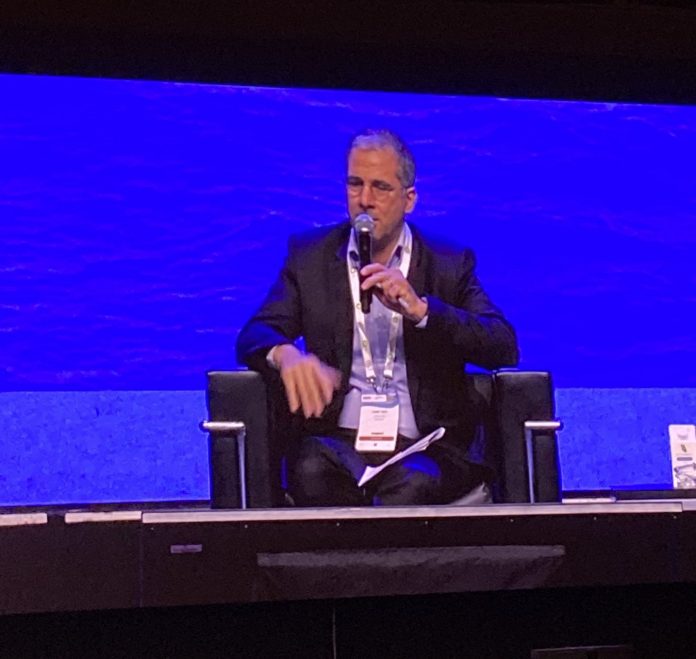French shipping giant CMA CGM believes that there is no one fuel that can achieve the industry’s move towards decarbonization in 2050, and that all eligible fuels should be explored.
Speaking at the Singapore International Bunkering Conference today (7 October), CMA CGM’s Vice-President for Bunkering and Energy Transition, Farid Trad said, “We’re investing in assets, ships, in efficient vessels that are LNG-propelled or methanol-powered. It has been well understood that LNG is a great transition fuel and this could lead to the production of bio-methane and e-methane.
“At CMA CGM, we believe in all solutions. The needs for shipping are so massive that we need to work on LNG, biofuels and methanol.”
The French carrier already has 31 e-methane ready ships in its fleet and it will have 77 such ships by end-2026.
In September, CMA CGM launched a US$1.5 billion fund to accelerate its march towards carbon neutrality. The money will support industrial production of new fuels and low-emission transport solutions across CMA CGM’s businesses, including maritime, overland and air freight services.

CMA CGM’s Vice-President for Bunkering and Energy Transition, Farid Trad
In August, the Marseille-based company ordered six methanol-fuelled 15,000 TEU vessels at Dalian Shipbuilding Industry Company, for delivery in 2025.
Trad said, “We’re scaling up…we have been actively buying biofuels, bio-methane, since 2020 and hopefuly, bio-methanol optimising. We believe there will be huge gains in emission reduction by reducing the carbon intensity of our assets.”
He added that shipping companies will not be able to achieve carbon neutrality without the cooperation of fuel producers, suppliers, port authorities and customers
Trad elaborated, “I think the key factor in success, as we have already seen with LNG, is to involve everybody in the value chain, from the supplier to the port authority, to the barge operator, to the shipper and to the end-consumer. All in the value chain have to acknowledge the importance of this transition and to work towards the goal of making the fuel available.
“Change comes at a cost. We all know that renewable energy will be expensive but it’s necessary so in order to mitigate those costs, to make it easier to absorb along the value chain, we need to have a partnership with customers to make that happen.”
Martina Li
Asia Correspondent
 Hotline: 0944 284 082
Hotline: 0944 284 082
 Email:
Email: 


 VN
VN